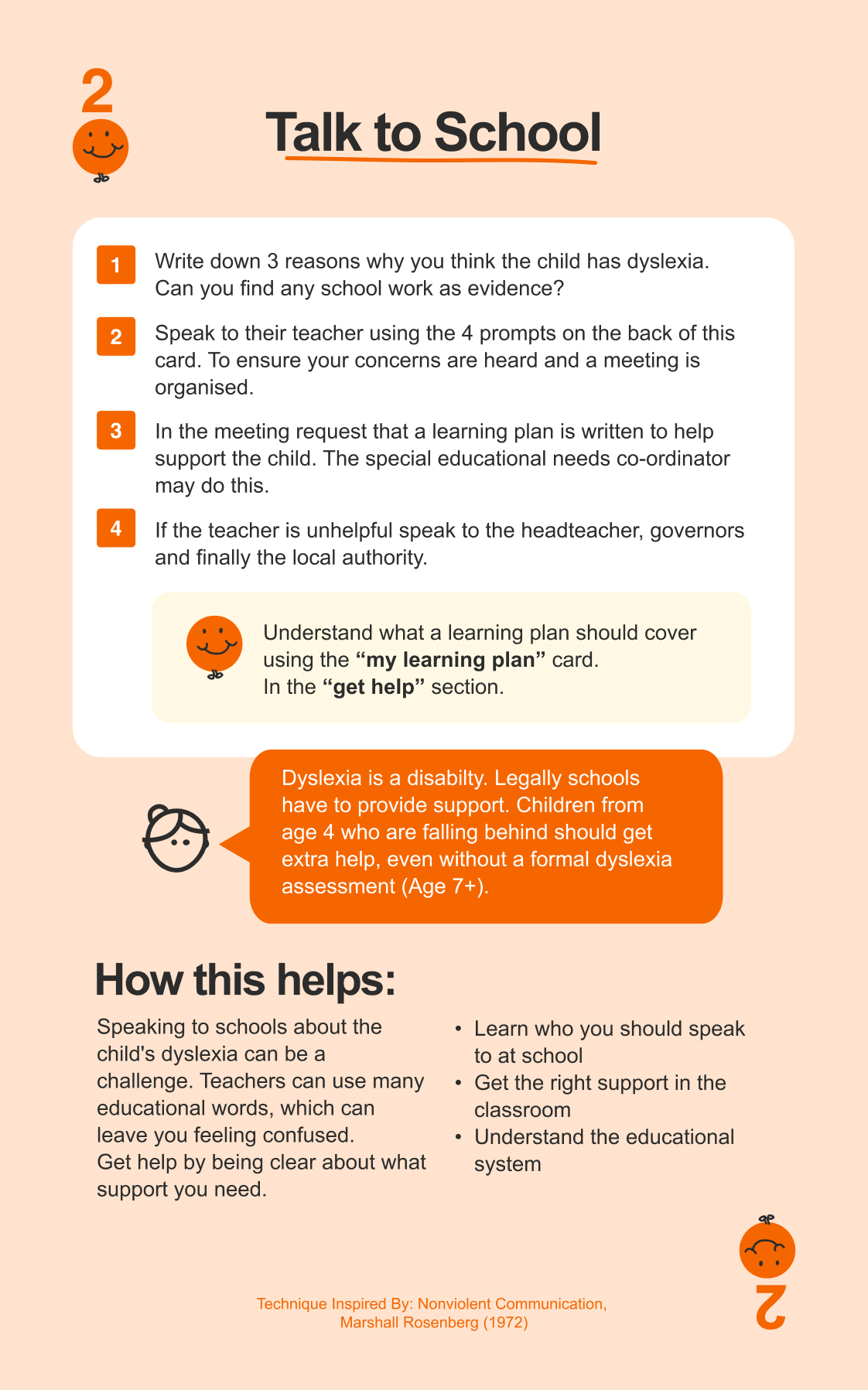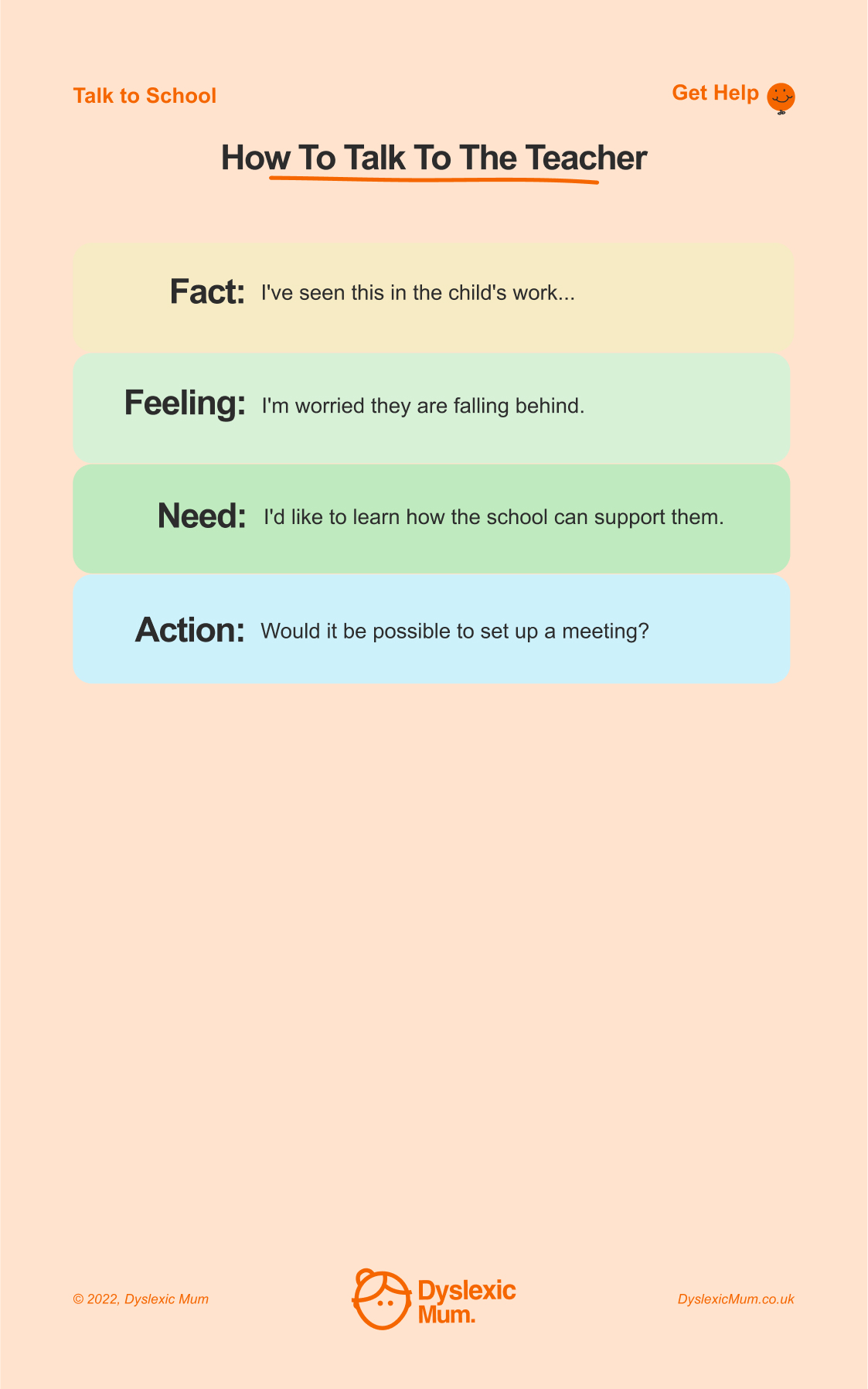Learn how to get dyslexia help for a child by communicating with teachers effectively.
Being able to communicate what you need and to get the right help is a skill.
Non-violent communication helps everyone feel heard and find the best solution together.
This can be done by being:
- being clear
- sticking to the facts
- talking about your feelings
- showing empathy
- listening to the other person
- working together
- coming to a joint solution
Talk to School Card
Learning to speak so that teachers understand, use the ‘Talk to School’ card below.
This Mooki Card is based on scientific research, on ‘Non violent communication’.


Talk so teachers listen
Get advice from the Dyslexic Mum on how she learned to speak to teachers more effectively:
“I used to find it so stressful speaking to my child’s teachers about her dyslexia. I would try to grab them during school drop-off for a quick chat. Children and other parents would surround the teachers, all wanting their attention too. It was chaotic!
When I finally got a chance to speak to the teachers, I would get myself in a muddle, and I did not get the dyslexia help my little girl needed. I realised that maybe it was the way I was asking for help, that I needed to be clearer about what help we needed and why my little girl needed it.”
Watch the clickable video below, ‘Get dyslexia help from school’.
When talking to teacher about dyslexic use these top tips below:
- Stick to Facts: When talking to the child’s teacher about dyslexia, stick to the facts. Have 3 examples of why you think the child is dyslexic. Use the “Signs of dyslexia in 5 to 10 year olds” and “Spot dyslexic writing” cards to help you.
- Organise a Meeting: Speak to the child’s teacher when it is quiet and you won’t be interrupted. Ask to organise a meeting, request that people who can help attend. Such as the Special Educational Needs Co-ordinator.
- Say What You Need: Teachers when you ask for help can use lots of educational jargon. You can go away feeling more confused, without the extra help you need. To keep it simple, ask for a “Learning Plan” to be written for the child.
- Learning Plan: A child does not need to have been formal assessed as being dyslexic, to be given a learning plan. This can be given to any child struggling. Showing clear goals that they will work towards, to help them catch-up.
All the cards are available as part of a “Mooki Cards“. Complete with 56 cards and storage wallet. Perfect for using at home or in the classroom. Order your “Mooki Cards” here!
